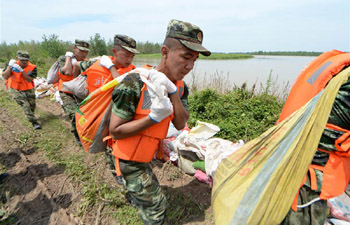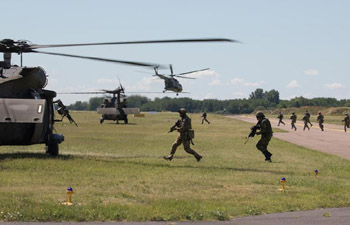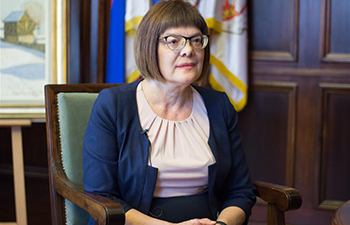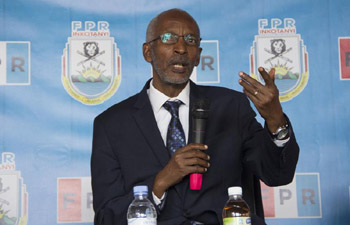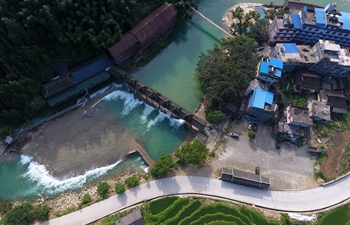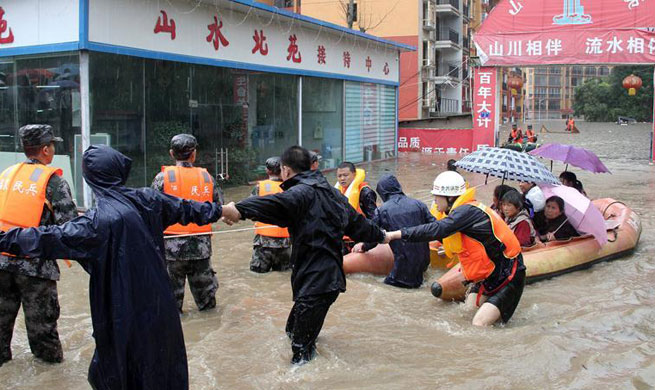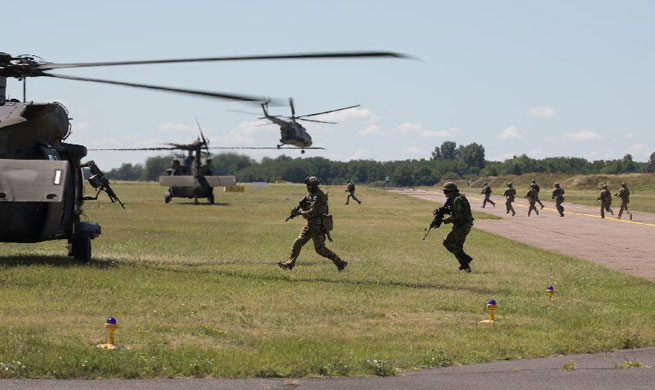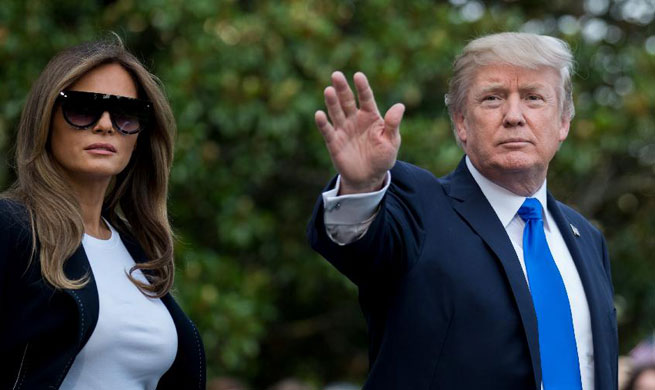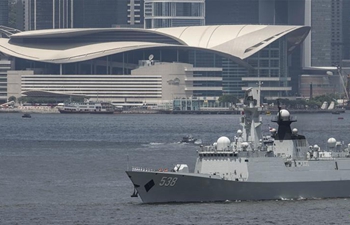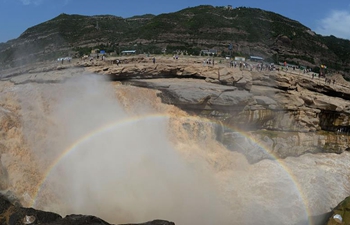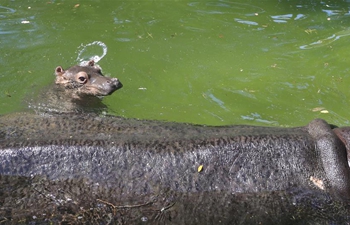SANTIAGO, July 12 (Xinhua) -- Latin American trade bloc Pacific Alliance (AP) will begin formal negotiations in September towards a trade agreement with Australia, Canada, New Zealand and Singapore, officials announced on Wednesday.
Paulina Nazal, head of International Economic Relations at the Foreign Affairs Ministry of Chile, one of the bloc's four founding members, said the AP's negotiating team will first gather in Lima, Peru between Sept. 3 and 4.
Alliance members Mexico, Colombia, Peru and Chile hope to quickly wrap up trade talks with the four countries, which currently have associated state status, she said.
To that end, "the chief negotiators will meet with the legal advisers of the eight countries to agree on the terms of the negotiations," said Nazal.
"There is great interest in concluding these negotiations, or in announcing the terms of the negotiations, ideally by the opening of the next Pacific Alliance summit, which is going to be in the middle of the year," added Nazal.
While there are existing trade agreements between the eight states, the new talks hope to expand those accords within the framework of the AP.
"We have a lot to gain with this new pact, since it will include matters that were not included in the existing agreements, notably SMBs (small and medium-size businesses), the issue of gender and trade, the digital agenda and others," she said.
AP members opted to jointly negotiate the new treaty, which requires representatives from all eight countries to attend, though tariffs will be broached on a bilateral basis, she said.
The AP has 52 associated states, but the others have not made a firm request for a trade deal, though Japan and South American trade bloc the Southern Common Market have also expressed interest, said Nazal.
Asked about potential trade deals with the European Union or countries that signed the now defunct Trans-Pacific Partnership, Nazal said the interest was there, but it was not the right time.
"Due to a question of timing, perhaps it is too complicated for them to get very heavily involved in a negotiation with the Pacific Alliance (at this time), but they are tremendously interested in the medium term to gain associated state status," said Nazal.




